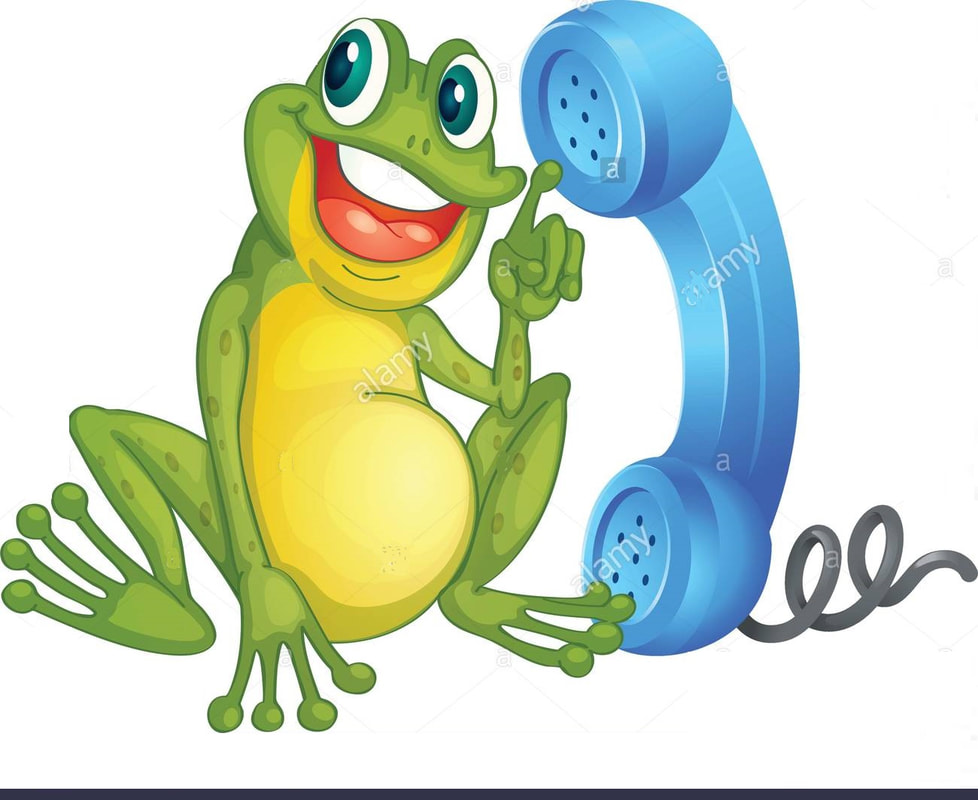I had prepared a nice little breakfast, as usual, and was just sitting down for my first cup of tea this morning when Dharma arrived. After we chatted, ate, and drank our tea Dharma began my lesson with these words, "Tadpole, a frog's silence is often misinterpreted but is never misquoted." I immediately thought about the telephone game; what is whispered becomes misquoted as it's passed down from person to person in the chain. It's all done in fun. Dharma reminded me, though, that as adults our words are often misquoted maliciously; to hurt hurt us or make us look silly. Sometimes it can can be better to simply say nothing. The trick is knowing when to speak up and when to remain silent.
My question to Dharma was this, "Sir, if we don't speak up, won't our silence be misconstrued as either ignorance or that we simply don't care?" "Yes, Irwin, that's a risk we take but there are times when being silent is our best option." And with that statement, Dharma gave me a few examples of when it is better to be silent.
1, When the other person(s) misunderstands you and you have no duty to speak.
"Why waste words when the other side is not making the effort to understand what you have to say? Silence can never be misquoted. Let them learn through experience and you will save your peace of mind."
2. When two parties are arguing and it doesn't concern you.
"Don’t get involved. If you intervene you may come under fire. It may be tempting to speak to speak up but maintaining stoic silence on your part is best."
3. When you have no idea what you're talking about.
"Empty vessels make more noise. It is best not to say anything if you have nothing meaningful to say. Your words will carry more value when you speak only to make a sensible point."
4. When you need someone else to get the credit.
"You reflect quiet confidence in your abilities when you smile and let your boss or team take the credit for your work. The goodwill thus created will ensure your success in the long run."
5. When you are bragging instead of sharing.
"It’s best to be humble and let others appreciate you than to toot your own horn. Quietly focus on your work and let your hard work speak for you; confident humility and humble confidence.”
6. When your comments are more about you than about others.
"Listening more is a great art of conversation. Check yourself when you are not including others or letting them express themselves as they will get bored of your narcissism and you will soon find yourself isolated."
7. When you want someone else to grow.
"Some people will criticize you just to provoke you into an argument. Don’t allow them the pleasure.Take the high road and show restraint. They are coming from a point of weakness themselves and would love to see you react negatively. Being silent makes you more powerful."
8. When the other party in the negotiations starts debating with themselves.
"Silence is the best reply in a negotiation. Many people feel uncomfortable in conversation gaps and may start revealing more than they should. You often learn lots when you remain quiet.
9. When you want to avoid angry outbursts.
"Don’t be like the matchstick that flares up on slightest friction. It causes destruction and then fizzles out for good. Move away to a quieter place. Drink some cold water if possible. Take deep breaths and calm your mind. Anger clouds your understanding. If you were wrong, there is room for rational brainstorming. If it’s righteous anger, silence is the best way to let the other person know they did wrong. Emotional self-control saves you from damaging your relationships."
10. When you want to listen to your inner voice. (Which you should do often!)
"When you listen to your inner voice, you can problem-solve most effectively. According to many experts, when you listen to that inner voice in stillness, it can increase creativity and lower stress." And finally,
11. When you receive negative feedback from your superiors at work.
"Accept it quietly, assess it, learn from it, improve and grow. Silence and Smile are two tools of successful people (frog's too). A smile can solve many problems and silence is the way to avoid many problems...and it will never be misquoted!
Holding your tongue and have many benefits. But it is also important to speak your mind when it is important. Learning when silence will be most beneficial is a valuable tool. And one that can keep us out of trouble, more often than not. Dharma's lessons are always spot on and are lessons that anyone can benefit from.
How smart were dinosaurs? I invite you back here tomorrow for a look into this fascinating subject. I hope you'll join me. Until then,
PEACE.

 RSS Feed
RSS Feed